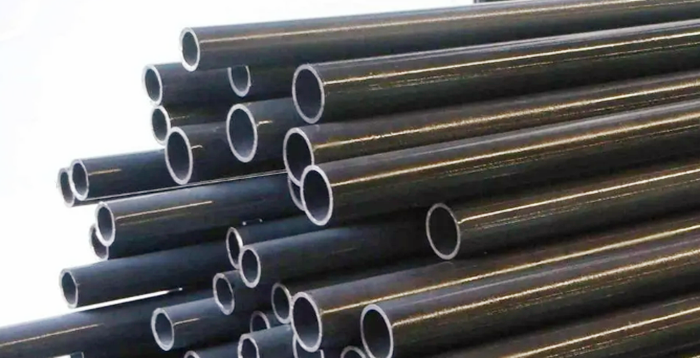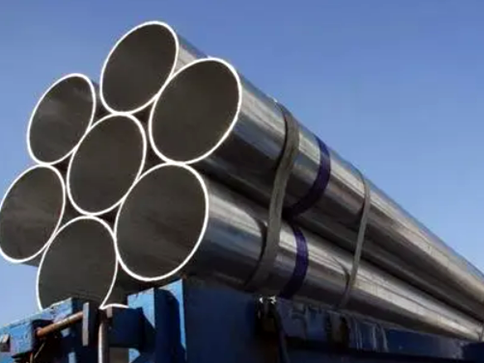A black steel pipe is a strong piping material with a black iron oxide coating, the dark color is caused by the iron oxide that forms on the steel during the manufacturing process. They are bare steel pipelines. Modern manufacturing equipment has increased the efficiency and quality control of the manufacturing process. The pipes undergo rigorous testing with water and special X-ray gauges. In the case of black pipe, this black oxide scale will not be visible after a few weeks of use. While many of these pipelines have been removed from service and replaced with coated steel or plastic, others are still in operation.
Black steel pipes also known as uncoated steel pipelines. Black steel pipes are especially strong and durable and are used to transport gas and water to rural areas, as well as to protect electrical wiring, deliver high-pressure steam, and carry air. In addition, black pipes are used by the oil field industry to pipe oil through remote areas. Pipeline operators must consider the age of these bare pipes when choosing which pipeline materials to use. A lack of protective outer coating may accelerate the need for replacement or rehabilitation. Here is some commonly used uncoated steel pipe.
 Some people are often confused about the difference between black steel pipe and galvanized steel pipe. Actually, black steel is not galvanized and instead has a dark iron oxide coating. Carbon steel is highly corrosive when exposed to moisture, so it should be handled with care. While it can be used for a variety of applications, it is important to keep corrosion in mind.
Some people are often confused about the difference between black steel pipe and galvanized steel pipe. Actually, black steel is not galvanized and instead has a dark iron oxide coating. Carbon steel is highly corrosive when exposed to moisture, so it should be handled with care. While it can be used for a variety of applications, it is important to keep corrosion in mind.
There are many uses for carbon steel pipes. These pipes are often used in municipal and sewage systems. Other applications may include steam and vent pipes and are used in construction projects. Choosing the best steel for the job can be tricky, as some materials have more extra properties than others. Whether the pipe will be exposed to high temperatures is an important consideration. Carbon steel pipes can be corroded if they are exposed to high temperatures, so you’ll need to choose a different metal for cryogenic liquids. In addition to gas pipelines, seamless steel carbon pipes are also used in other industries. For example, they’re used in boilers and in the petrochemical industry. They’re also commonly used for boilers, bearings, and high-precision structural steel pipes.
While you may be surprised to know that cast iron pipe is black in the surface and often used for gas lines, you may not know about their difference. Besides its strength, the black iron pipe is also easy to install and maintain. Its compounds and pipe and fittings system allow it to be easily assembled and is relatively easy to repair. In fact, black iron is actually made of low-grade mild steel, which makes it more corrosion-resistant. For these reasons, black iron pipe is a popular choice for gas lines.
A hollow structural section of black steel pipe can be either round or square. Its shape is important for many structural applications, including building construction and mechanical manufacturing. The smooth, rounded surface and lack of protruding edges make hollow sections ideal for high-profile applications. ASTM A500 specifies dimensions, tolerances, and sectional properties for cold-formed welded structural hollow sections. This specification also covers hot-formed and cold-formed black steel pipes. It carries a higher standard for structural applications than ASTM A53 and has been used in many construction applications, including water and gas lines. Hollow structural sections of black steel pipe are ideal for structural applications, such as rebar, girders, and beams.
If you’re looking for black steel pipe, you’ve come to the right place. We offer a wide selection of this material, and you can refine your search by size, method of manufacture, or wall thickness. We also offer special pricing for large-scale projects. But, if you need to purchase a large quantity, our experienced team can help you get the lowest price.







